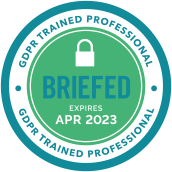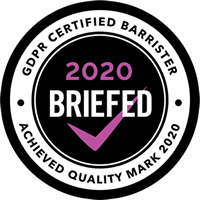
CIGA 2020, COVID-19, AND COURT CONVENED SCHEME MEETINGS
10th August 2020
In Re Columbus Energy Resources plc (2020), Trower J held that the provisions of Schedule 14 of the Corporate Insolvency and Governance Act 2020 (on the ability of companies to hold meetings during the Covid-19 pandemic) applied to meetings of members under Part 26 of the Companies Act 2006.
On 5 August 2020, Trower J sanctioned a scheme of arrangement (the “Scheme”) effecting the takeover of Columbus Energy Resources plc (“Columbus”) by Bahamas Petroleum Company plc (“BPC”). The takeover was effected by way of a transfer scheme of arrangement pursuant to Part 26 of the Companies Act 2006 (“CA 2006”), under which the holders of Columbus’ ordinary shares of 0.05p each surrendered their shares to BPC in exchange for newly issued shares in BPC. In sanctioning the Scheme, Trower J provided guidance on the application of the Corporate Insolvency and Governance Act 2020 (“CIGA 2020”) to court convened meetings of members under Part 26.
A proposed scheme of arrangement under Part 26 CA 2006 must be approved at a court convened meeting of creditors or members, as the case may be, or any class thereof. Well-established authority, recently reviewed by Trower J in Re Castle Trust Direct plc [2020] EWHC 969 (Ch), indicates that an essential characteristic of a meeting is “a coming together sufficient to enable a consultation to take place”.
This has been complicated by the impact of Covid-19, and the consequential restrictions on social contract, public gatherings and non-essential travel under the Health Protection (Coronavirus Restrictions) (England) Regulations 2020 and other generally promulgated guidance. How can a company hold a meeting of its members or creditors in circumstances where the law forbids them from coming together?
Recent schemes of arrangement under Part 26 CA 2006 have adopted different approaches. In Re Castle Trust Direct plc [2020] EWHC 969 (Ch), Trower J held in the context of a creditors’ scheme that there could be a “meeting” by telephonic means accompanied by a webinar, even where all creditors are not actually seen at the meeting (see at [42]). Other Covid-19 era creditors’ schemes of arrangement, like Re ColourOz Investment 2 LLC, have similarly held meetings virtually by webinar (see at [128]).
Existing Covid-19 members’ schemes of arrangement have also taken some steps to allow the involvement of members in the meeting itself. For instance, some schemes have allowed shareholders to dial in to listen to proceedings at the meetings (e.g. Re Moss Bros plc, sanctioned on 11 June 2020, and Re Castleton plc, sanctioned on 3 June 2020). However, there has as yet been no reported judgment subjecting members’ schemes to the detailed scrutiny seen in the context of creditors’ schemes in Re Castle Trust Direct plc, nor analysing the impact which the new meeting provisions of CIGA 2020 have on members’ schemes.
In the Scheme between Columbus and its shareholders, in light of the ongoing Covid-19 global pandemic, it was proposed that:
– The Scheme Shareholders would be permitted to vote only by proxy;
– Although a physical meeting would occur at the offices of Columbus’ solicitors on 27 July 2020, it would be attended in person (either physically or electronically) only by the number of people required to form a quorum (including the chairman of the meeting); and
– Any scheme shareholder who attempted to gain access to the physical meeting would be refused entry in order to comply with the UK Government’s public health instructions.
(the “Meeting Arrangements”).
No virtual webinar or other means of listening in to the meeting was made available to the scheme shareholders. As such, this Scheme is significant because it arguably diverges even further from the traditional concept of a “meeting” than any of the above schemes of arrangement. These Meeting Arrangements were, however, in line with the procedure adopted in Re Indigo Vision Plc, a scheme of arrangement which was sanctioned by the Scottish courts on 12 June 2020.
At the sanction hearing, Trower J was alert to the possibility that it might be said that the Meeting Arrangements did not give rise to a “meeting” under the older authorities he had discussed in Re Castle Direct Trust. However, he was ultimately satisfied that the provisions of CIGA 2020 meant that, nonetheless, there was a valid “meeting” of a class of Columbus’ members for the purposes of Part 26 CA 2005.
The judge noted that Schedule 14 of CIGA 2020 makes provision for the meetings of “qualifying bodies” held during the “relevant period”. As to this:
– He was satisfied that Columbus was a qualifying body under Sch 14 para 1(g) (since it was a “company” within the meaning of section 1(1) CA 2006).
– He noted that the “relevant period” is defined in Sch 14 para 2(1) as beginning with 26 March 2020 and ending with 30 September 2020.
– He further noted that Sch 14 para 3(2)(b) provides that the rules in para 3 apply to a “meeting of any class of members of a qualifying body”. Para 3 goes on to provide that where such a meeting is held during the relevant period:
– The meeting need not be held at any particular place;
– The meeting may be held, and any votes may be permitted to be cast, by electronic means or any other means;
– The meeting may be held without any number of those participating in the meeting being together at the same place; and
– A member of the qualifying body “does not have a right (a) to attend the meeting in person, (b) to participate in the meeting other than by voting, or (c) to vote by particular means”.
Given this, Trower J was satisfied that CIGA 2020 meant that what had occurred in connection with this Scheme was indeed a “meeting” for the purposes of Part 26.
Trower J noted that there was no equivalent protection for creditors, and observed that the principles in Re Castle Direct Trust will continue to apply in that context. However, although conscious that it may appear odd to have divergent treatment of members and creditors, he suggested that this was simply the consequence of how the emergency legislation had been enacted. He also considered that even with the provisions of CIGA 2020 in place, it will still be necessary (i) for the court convening the meeting to give directions enabling the statutory purpose of Part 26 to be fulfilled, and (ii) for whatever is directed to take place to otherwise constitute a “meeting” in its essential incidents.
Where a company adopts an approach like that taken in this Scheme, the judge indicated that it will be particularly important to explain to the court how steps have been taken to ensure that full information has been provided to the scheme shareholders. In this case, that requirement was met by provision of a detailed explanatory circular, a further Q&A document, video interviews with key figures in the company, and further attempts to engage the shareholders via third party agencies. In the circumstances, the turnout for the court convened meeting was considerably higher than the turnout for previous annual general meetings, and the Scheme was overwhelmingly supported by the scheme shareholders voting.
It is anticipated that a transcript of the full judgment of Trower J, expressing the judge’s considered views, will be available in due course. A Westlaw summary is available here
The court’s approach will be welcome news to those designing members’ schemes of arrangement under Part 26 during the Covid-19 pandemic. Even in light of this judgment, however, it will remain prudent for companies to put in place provisions to enable consultation to take place among shareholders at the court convened meeting (whether in line with Re Castle Direct Trust or otherwise). This will both help to satisfy the court that a “meeting” has indeed taken place (thereby addressing this jurisdictional requirement), and will also help to persuade the court to exercise its residual discretion to sanction the scheme.
Matthew Parfitt and Philip Morrison acted for Columbus Energy Resources Plc.



